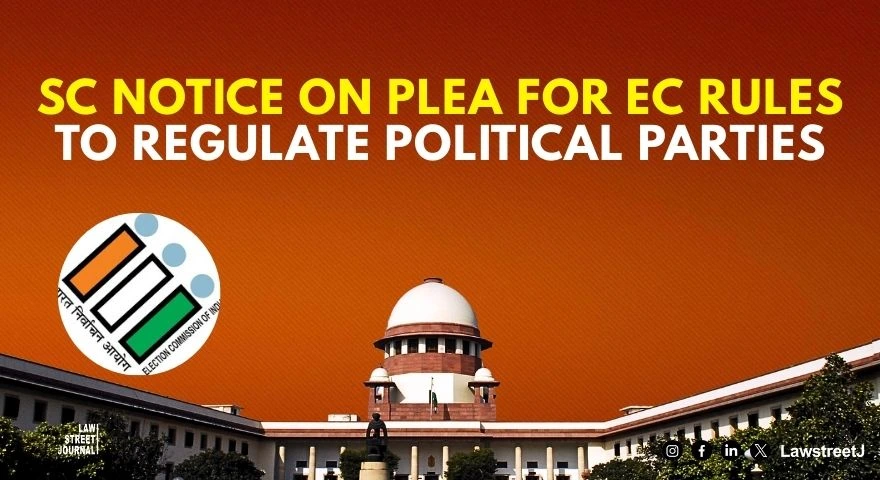NEW DELHI: The Supreme Court on Friday issued notice on a plea filed by eminent PIL lawyer Ashwini Kumar Upadhyay for the Election Commission to frame rules for registration and regulation of political parties to promote secularism, transparency, and political justice.
While deciding to consider the PIL, a bench of Justices Surya Kant and Joymalya Bagchi asked Upadhyay to implead the registered national political parties.
“They (political parties) will say that you're asking something to regulate them and they were not here," the bench told Upadhyay.
After hearing submissions from Upadhyay, the bench issued notice to the Centre, EC and the Law Commission of India on the plea.
The petitioner submitted that the move to regulate political parties within the ambit of the Constitution would pave the way for robust democratic functioning.
Citing media report, the petitioner contended that facts constituting cause of action accrued on July 13, 2025,5 when Income Tax raided offices of two political parties and found the details of 500 crore black money. The plea said both political parties were formed to take donations in cash through hawala and to return money through cheque after deducting 20% commission.
The plea contended that injury to the citizens is large because around 90% political parties are formed to convert black money into white, and they never contest elections but collect thousands of crores in cash and refund it to the donator by cheque after deducting 20% commission.
It stated that the "bogus political parties" not only posed a serious threat to democracy but also maligned the country by appointing hardcore criminals, kidnappers, drug smugglers and money launderers as national and state office bearers after taking huge amounts of money from them.
"There are no rules and regulations for political parties. Therefore, many separatists have formed their political party to collect donations. Some office bearers of these parties have succeeded in getting police protection also," the plea said.
The plea also stated that transparency and accountability in the working of political parties are essential in public interest as they perform public function and, therefore, EC must frame rules and regulations for them.
The petitioner also sought a direction to the Law Commission of India to examine the best practices of developed democratic countries and prepare a comprehensive report on registration and regulation of political parties to reduce corruption and criminalisation in politics.
Upadhyay pointed out the political Parties have a binding nexus with the populace. As a central institution of Indian democracy, Political Parties embody the will of the people, carry all their expectations that democracy will be truly responsive to their needs and help and solve the most pressing problems that confront them in their daily lives.
EC under the Elections Symbols (Reservation and Allotment) Order 1968, promulgated under the Article 324 and Rules 5 and 10 of the Conduct of Election Rules 1961, grants symbols to the political parties for election purposes for the recognition of them and can suspend or withdraw recognition of their on their failure to observe Model Code of Conduct or other lawful directions and instructions of the Election Commission. It is also indicative of the public character of the political parties, he said.
Disclaimer: This content is produced and published by LawStreet Journal Media for informational purposes only and does not constitute legal advice. The views expressed are independent of any legal practice of the individuals involved.

















